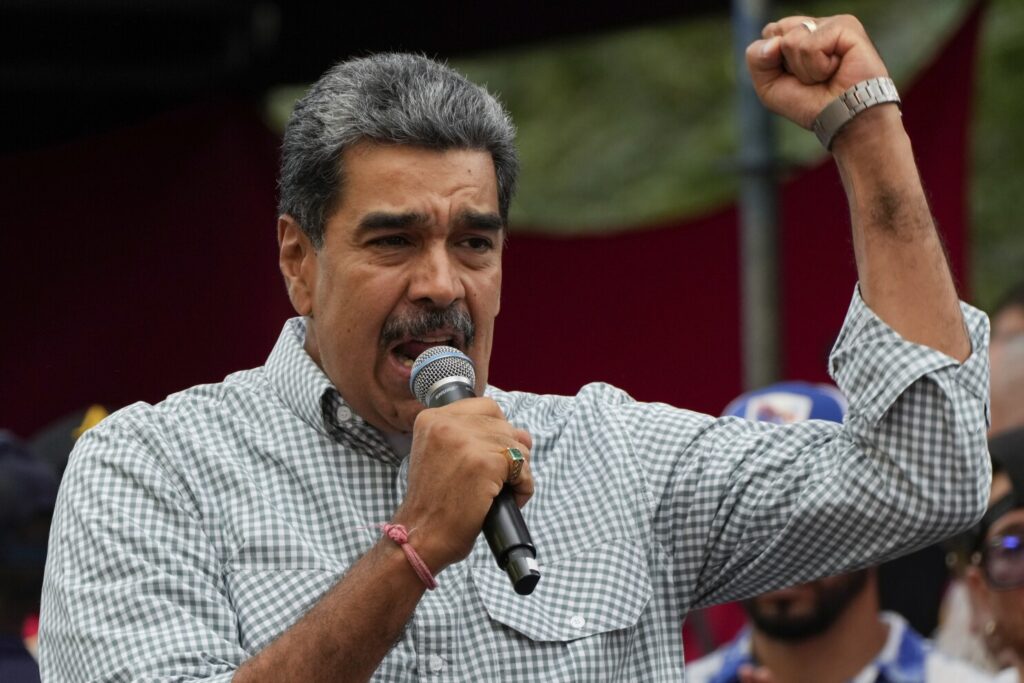The United States has increased its reward to $25 million for information leading to the arrest of Venezuelan President Nicolás Maduro, coinciding with his inauguration for a controversial third six-year term. The announcement comes amid widespread criticism from international governments and Venezuelan opposition leaders.

Rewards were also announced for other top Venezuelan officials, including up to $15 million for Defense Minister Vladimir Padrino and additional sums for Interior Minister Diosdado Cabello. These measures follow accusations of corruption, human rights violations, and undermining democracy.
In tandem with the US move, the UK issued sanctions targeting 15 high-ranking Venezuelan officials, including judges, security personnel, and military leaders. The UK Foreign, Commonwealth, and Development Office stated that those sanctioned were responsible for “undermining democracy, the rule of law, and committing human rights abuses.” UK Foreign Secretary David Lammy described Maduro’s regime as “fraudulent” in his statement.
According to bbc.com, the European Union joined the international response by extending restrictive measures against Venezuela, citing the regime’s failure to restore democracy and uphold the rule of law. The EU also sanctioned an additional 15 Venezuelan officials, intensifying global pressure on the Maduro government.
Maduro has dismissed the allegations made by Western nations and opposition leaders as baseless. He has yet to issue a formal response to the latest sanctions. During his swearing-in ceremony on Friday, Maduro vowed that his new term would usher in an era of “peace, prosperity, equality, and new democracy,” saying, “I swear by history, I swear by my life, and I will fulfill it.”
The July election, which declared Maduro the winner, was widely rejected by the international community, including neighboring Brazil and Colombia. Many nations have instead recognized opposition candidate Edmundo González as Venezuela’s legitimate leader.
The bbc.com also stated that González, who fled to Spain in September, has been rallying international support while facing an arrest warrant issued by the Maduro government, which has offered $100,000 for information leading to his capture.
The inauguration, marked by tight security, excluded most Venezuelan media outlets and barred foreign journalists from entering the country. Maduro remains internationally isolated, with only a handful of allies such as Iran, China, and Russia. Leaders from Cuba and Nicaragua were the sole foreign dignitaries to attend his swearing-in ceremony.
The contested election and subsequent developments have left Venezuela in a deepening political crisis. Maduro’s government, backed by the country’s National Electoral Council (CNE), has faced growing resistance both domestically and abroad.
Opposition figures, including former presidential candidate María Corina Machado, continue to be targeted by the regime. Machado, barred from running and now in hiding, has not been seen publicly since August.
Source: bbc.com



